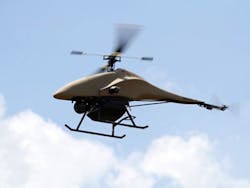Drones Used By Law Enforcement
DRONE, as defined by dictionary.com:
a. an unmanned aircraft or ship that can navigate autonomously, without human control or beyond line of sight: the GPS of a U.S. spy drone.
b. (loosely) any unmanned aircraft or ship that is guided remotely: a radio-controlled drone.
Read through the definition. Now read it again. The ONLY word in there that potentially bothers me is "autonomously" but even that only concerns me IF the "drone" in question is armed. As a 30+ year veteran of law enforcement work having served at every level including command staff and in executive positions, I can't think of a single instance where I've seen or heard about an armed autonomous remote controlled vehicle. The very phrase is oxymoronic. To be autonomous the vehicle would operate without outside/remote control. So I ask again, why all of a sudden are we in law enforcement getting such a big push back about the use of "drones"? I'll share what I think and I ask you to share your thoughts in the comment section below.
I've always wanted a "drone." Actually, I've always wanted a remote controlled helicopter and I thought it would be super-cool to put a miniature video camera or video transmitting device on it. You see, I can't fly. God/nature didn't bless me with wings or the ability to disengage myself at will from gravity's pull. So, if I want to see what I'd see while flying, I'd require a flying vehicle with a camera - hence my desire for a properly equipped remote control helicopter. And yes, I've even thought it would be cool to put a miniature copy of the Browning M2 machine gun (an M22 in .22lr fed by cloth belt) on the underside and "strafe" targets at the range. Think about that for a moment: armed or not, if that helicopter is equipped with any type of surveillance equipment, real time, transmitting or otherwise, it's a "drone." But would citizens be in a panic about law enforcement having a few? Maybe. I bet it would depend on the use as delineated by protocol and standard operating procedure. Here are a few examples of how "drones" can be or are used by law enforcement and be of benefit.
Border security: One drone and a few qualified operators can patrol plenty of border while spending few resources. If the drone "sees" something suspicious, THEN a human patrol can be sent out or coordinated. This use of an unmanned aerial vehicle (UAV) or an unmanned remote control vehicle (URCV on the ground) can minimize unnecessary wear-and-tear on patrol vehicles as well as mitigate risk for patrol personnel.
Bomb eetection: How many SWAT teams and/or bomb teams have remote controlled "robots" that they use to enter and assess high risk environments? PLENTY. Oddly, the common URCV used by law enforcement is called a "robot," which would imply autonomous function on the part of the unit. That's not accurate. URCVs ARE drones - they just don't fly. They operate on the ground. How many of them are armed? Many can be. How much public complaint has been heard about them? Zero. Why? We'll get to that...
Search & rescue: A drone equipped with infra-red radar units and video transmitting capabilities could be (and is?) a fantastic benefit to law enforcement when it comes to searching for lost people in hazardous terrain, low light conditions or heavily wooded areas. Think about how much cheaper it is to fly a drone for hours upon hours, crisscrossing a search grid as compared to flying a helicopter or plane for that same amount of time. Further, if the drone is properly equipped it could be used to deliver emergency supplies to lost/stranded people until rescue personnel can get to them.
Risk assessment: After a disaster, fire, hurricane, etc. it's not always easy to access certain areas to assess the risk of sending in personnel or equipment. A drone can be used relatively quickly and easily to get a visual assessment completed.
HazMat scenarios: I clearly remember helping to evacuate several square miles around an overturned propane truck on the Washington DC Beltway back in 1986. A state trooper had to risk his life for quite some time as he used a pair of binoculars to get a look at the truck, the HazMat placard and the overall situation. A properly equipped drone could have gotten a lot better look while the operator stayed at a much safer distance.
Those are just a few examples. My point is that drones are just that: drones. They are remotely controlled vehicles whether they are on the ground or in the air, and there is always a person operating them. That person - that someone - is held accountable, just as if he (or she) was driving a car.
So, why the sudden outrage? Yes, I'm going to blame mainstream media combined with a public all too willing to accept whatever they're spoon-fed and not think about it past what the talking head on television says. It doesn't help that social media is exploding with paranoid conspiracy theories about what "the government" will do with all those drones. Let me ask you this, just to illustrate my point: When you read "drone" what do you picture in your head?
The most used image is of a Predator drone, owned and operated by the U.S. Army and the U.S. Air Force. It's a military drone used to gather intelligence, take pictures, find terrorists, etc. Yes, it's been used to deliver explosives on military targets. If THAT is the image you see when you read "drone" then no wonder people are freaking out about domestic law enforcement having such. We simply don't need it.
We, in law enforcement, are fighting a public relations battle... again. It's nothing new to us. The media on television, social media outlets and in the movies have shown time and time again what a drone looks like and how it can be used. Have you seen "The Bourne Legacy"? A drone is used to target and blow up a cabin in the woods. There's an image that makes citizens feel nice and warm and fuzzy when they imagine the government owning the drone (which it does in the movie) and the cabin holding two citizens. Can you say "execution?" "assassination?" THAT is what the public is being fed. THAT is the image we have to offset.
It is now, once again thanks to the mainstream media, part of our job to educate the public about the UAVs and URCVs that we use, how we use them and why. In reality drones can help save lives, minimize risks, and cut overhead costs. We regularly use these tools to perform our jobs more efficiently, and THAT is what we need to explain to the public we serve.
Your thoughts?

Lt. Frank Borelli (ret), Editorial Director | Editorial Director
Lt. Frank Borelli is the Editorial Director for the Officer Media Group. Frank brings 20+ years of writing and editing experience in addition to 40 years of law enforcement operations, administration and training experience to the team.
Frank has had numerous books published which are available on Amazon.com, BarnesAndNoble.com, and other major retail outlets.
If you have any comments or questions, you can contact him via email at [email protected].



